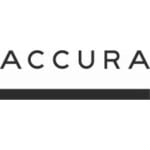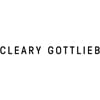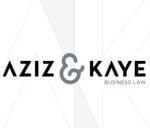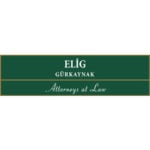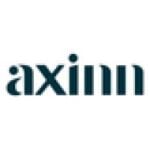-
What is the relevant legislative framework?
The relevant legislative framework at European Union (EU) level for cartels is Article 101 of the Treaty on the Functioning of the European Union (TFEU). This article, under its first paragraph, prohibits agreements between undertakings, decisions by associations of undertakings and concerted practices that have as their object or effect the prevention, restriction or distortion of competition within the internal market. It includes a non-exhaustive list of prohibited agreements: agreements fixing prices, limiting production, sharing the market or supply, applying dissimilar conditions to equivalent transactions, and making the conclusion of contracts subject to acceptance by the other parties of supplementary obligations.
Article 101(3) TFEU allows for anti-competitive agreements to be exempted under certain conditions. For the exemption to apply, such agreement must contribute to improving the production or distribution of goods or to promoting technical or economic progress, while allowing consumers to receive a fair share of the resulting benefit. At the same time, these agreements must not impose restrictions that are not indispensable to achieving these objectives or eliminate competition in a substantial part of the products in question. Parties to the agreement are expected to self-assess whether their agreement, when caught by Article 101(1) TFEU, can benefit from the legal exception under Article 101(3) TFEU. This is a complex exercise as also the Commission’s decision practice does not give much guidance. Historicallythe European Commission (the Commission) has thoroughly investigated and accepted Article 101(3) TFEU cases in only two older cases: (i) Synthetic Fibres (Case IV/30.810 of 4 July 1984) and (ii) Dutch Bricks (Case IV/34.456 of 29 April 1994).
To facilitate legal certainty, the Commission has adopted Block Exemption Regulations (BERs), which define categories of agreements that are presumed to meet the conditions of Article 101(3) TFEU, such as vertical agreements, technology transfer agreements, or research and development agreements. However, the Commission’s BERs consistently reaffirm that cartels constitute “hardcore restrictions” and therefore cannot benefit from a block exemption. This position is explicitly reflected in the latest BERs, which clearly state that the presence of hardcore restrictions – including price-fixing, market sharing, output limitation, or bid rigging – precludes the application of the exemption. As such, the inclusion of a hardcore restriction in any agreement automatically disqualifies that agreement from the scope of the relevant BER.
-
To establish an infringement, does there need to have been an effect on the market?
A cartel agreement is typically considered a restriction of competition by object, meaning there is no need to examine its actual implementation and/or effects on the market.
-
Does the law apply to conduct that occurs outside the jurisdiction?
Article 101 TFEU applies to conduct that has the object or effect to restrict competition in the EU regardless of whether the actual conduct takes place inside or outside the EU. According to the well-established case law (Case C-413/14 P of 6 September 2017, Intel Corp. v European Commission), the European Court of Justice (ECJ) ruled that Article 101 TFEU applies in cases where it is foreseeable that the conduct will have an “immediate and substantial effect” in the EU.
The possibility for the Commission to access documents located outside the EU was raised in the recent request for interim measures in the Nuctech case (Case T-284/24 R of 12 August 2024 – appeal rejected in Case C‑720/24 P(R) of 21 March 2025). The Commission had conducted dawn raids under the Foreign Subsidies Regulation at Nuctech locations in Poland and the Netherlands, accessing mailboxes stored on servers owned by its ultimate parent company in China. The President of the General Court of the EU (GC) confirmed that the Commission must be entitled to request information from undertakings located outside the EU in order to assess whether their conduct infringes EU law and is likely to produce a substantial effect on the internal market.
-
Which authorities can investigate cartels?
The Commission acts as the primary enforcer for all cartel infringements that cover several Member States. However, jurisdiction to enforce Article 101 TFEU is shared with the national competition authorities (NCAs). This necessitates close cooperation between the Commission and the NCAs, which is facilitated by the Commission Notice on cooperation within the Network of Competition Authorities (2004/C 101/03) and ECN+ Directive (Directive (EU) 2019/1 of the European Parliament and of the Council of 11 December 2018 to empower the competition authorities of the Member States to be more effective enforcers and to ensure the proper functioning of the internal market) allowing for exchanges of information within the European Competition Network (ECN). The ECN+ Directive guarantees NCAs’ powers to enforce cartel rules, particularly by guaranteeing independence and resources of NCAs.
National courts also play an important role in the enforcement of European competition law by empowering them to compensate victims of cartels for actual losses and lost profits that they suffer as a result of a cartel in their sector under the Damages Directive (Directive 2014/104/EU of the European Parliament and of the Council of 26 November 2014 on certain rules governing actions for damages under national law for infringements of the competition law provisions of the Member States and of the European Union) (see questions 21 and 22).
-
How do authorities typically learn of the existence of a potential cartel and to what extent do they have discretion over the cases that they open?
The Commission can initiate an investigation (i) following an immunity application, (ii) in response to a complaint from an interested party, (iii) on its own initiative (ex officio), (iv) in response to a report by an individual via the Whistleblower tool, or (v) following a sector inquiry.
In cartel matters, investigations frequently originate from immunity applications submitted by participants to the cartel (see questions 9 – 14). Nevertheless, the number of applications has been decreasing these past years due to the fact that the applicants are not protected from private damages claims.
Complaints originate from those directly affected by the practice suspected to restrict competition, who are able to provide specific information. When several Member States are concerned, the complainant can choose to contact the Commission instead of each NCA, or all relevant agencies in parallel. It is within the Commission’s own discretion to decide what it does with such complaint. It can decide to take action following the complaint or it can decide that there are insufficient grounds for acting on the complaint and reject it.
In order to make efficient use of its ex officio powers, the Commission gathers information from various sources such as media reports, anonymous tips, screening of European tenders, reports from national courts or agencies, or data uncovered in related competition cases. In fact, the Commission independently monitors and screens specific markets where signs of potential collusion are observed. Though resource-intensive, these efforts are increasingly supported by advanced digital tools, enhancing the Commission’s ability to detect patterns of cartel behaviour.
In its Report on Competition Policy 2023, the Commission expressed its intention to continue to develop is ex officio strategy. The Commission reported in particular that a “growing number of investigations is initiated based on the Commission’s ex-officio work.” This is particularly due to investments in digital tools.
Additionally, the Commission has recently introduced a Whistleblower tool to enable individuals to report anti-competitive conduct anonymously and more easily. While non-anonymous reporting has always been possible, this new tool addresses the sensitivity surrounding the disclosure of information, especially when it involves suppliers, customers, or competitors. The Whistleblower tool also protects current and former employees by allowing them to remain anonymous, who may fear retaliation, thereby expanding the pool of potential informants beyond competing companies. This added layer of protection increases internal pressure on companies, as they now know that insiders can come forward. However, individuals are not financially rewarded by the Commission, while such reward is available in the United Kingdom.
The Commission can conduct sector inquiries when it is of the opinion that a market is not operating as it should and believes that breaches of competition law may be a contributing factor. The Commission can then use the information obtained to better understand a certain market and if it finds grounds for doing so, open a specific investigation at a later stage to ensure the EU rules on cartels are being respected.
Cooperation between NCAs is also key as regards the detection of cartels, both with Member States and international bodies. In particular, exchanges with NCAs, who often have greater insight into local procurement, are crucial. Through the ECN and other international cooperation platforms, authorities share best practices and detection tools, fostering a more unified and effective enforcement approach.
-
What are the key steps in a cartel investigation?
The Commission’s Notice on best practices for the conduct of proceedings concerning Articles 101 and 102 TFEU outlines the entire process of finding a cartel infringement from the investigative phase to the procedures leading to a prohibition decision. The investigative phase includes the following stages:
Origin of the case: See response to the question 5 above.
Initial assessment phase and case allocation within the ECN: All cases undergo an initial assessment phase where the Commission examines whether the case merits further investigation. During this phase, the Commission may use investigative measures such as inspections, which are usually followed by requests for information (RFIs). RFIs can be used at any time during the investigation, formally (by decision or by letter) or informally (usually by simple email). RFIs are regularly sent not only to the undertakings under investigation but also to other stakeholders that may have relevant information.
Cases that do not merit further investigation are discarded at a very early stage. The Commission focuses on cases with significant impact on competition in the internal market and risk of consumer harm. The initial assessment also addresses the allocation of cases within the ECN, allowing for reallocation to NCAs if they are better placed to handle them.
Opening of proceedings: Proceedings are formally opened if and when the initial assessment concludes that the case merits further investigation and the scope of the investigation is sufficiently defined. The decision to open proceedings identifies the parties subject to the proceedings and briefly describes the scope of the investigation. The Commission may make the opening of proceedings public unless this could harm the investigation.
Although it may occur sooner, the opening of proceedings in cartel cases often occurs concurrently with the adoption of the Statement of Objections.
Possible outcomes of the investigative phase: Once the Commission reaches a preliminary view of the main issues raised by a case, different procedural paths may be considered. The Commission may proceed towards adopting a Statement of Objections with a view to adopting a prohibition decision (resulting in a fine), in this case, the addressees of the Statement of Objections will have the right to a minimum period of four weeks to reply in writing. The Commission may engage in discussions with the parties subject to the investigation with a view of adopting a commitment decision, agreeing on a settlement decision (see questions 15 and 16) or the Commission could close the proceedings if there are no grounds to continue it.
Access to file: The addressees of the Statement of Objections have a right to access the Commission’s file to allow them to effectively express their views on the Commission’s preliminary conclusions. Access to file is a right available to the parties even if they do not opt for an oral hearing. The details of right to access to file can be found in the Commission’s notice on access to file from 2005 (Commission Notice on the rules for access to the Commission file in cases pursuant to Articles 81 and 82 of the EC Treaty, Articles 53, 54 and 57 of the EEA Agreement and Council Regulation (EC) No 139/2004 (2005/C 325/07)).
Oral hearing: A party that received a Statement of Objections from the Commission has the right to be heard and the right to request an oral hearing, provided the request is made within the deadline set for submitting a written response.
The oral hearing offers an important opportunity for parties to present their arguments orally, supplement the written evidence. This gives the defendants the opportunity to convey orally their main arguments to the other services of the Commission involved but also representatives of the NCAs.
These hearings are not public. Only companies involved are present in the room, ensuring that participants can speak freely without concern for public disclosure.
In the context of cartel proceedings one State of Play meeting will be offered after the oral hearing.
Following the oral hearing, the Commission will decide whether it proceeds towards adopting a decision finding a cartel infringement for all objections or whether it withdraws certain objections and adopts an infringement decision only for the remaining part. However, if the objections are not sustained, the Commission will close the case at this stage.
-
What are the key investigative powers that are available to the relevant authorities?
The Commission has case handlers responsible for gathering all necessary information from governments and competent authorities of the Member States, as well as from undertakings and associations of undertakings. The Commission has a wide range of investigative powers at its disposal to help it collect the necessary information in the context of a cartel investigation, and it is up to the Commission to decide which tool it uses when. These are based on Regulation No. 1/2003 and the Commission notice on best practices for the conduct of proceedings concerning Articles 101 and 102 TFEU.
Inspections: Inspections, often referred to as “dawn raids,” are a key investigative tool at the Commission’s disposal when investigating cartels, the procedure for which is laid down in Article 20 of Regulation No 1/2003 and the Explanatory note on Commission inspections pursuant to Article 20(4) of Council Regulation No 1/2003. Undertakings are legally obliged to conform to such inspections, during which Commission officials are empowered to enter business premises, examine and copy documents, seal records or offices, and request on-the-spot explanations from staff.
Commission officials can be assisted by officials from the NCA in the Member State where the inspection takes place. While companies have the right to consult legal counsel, the absence or delay in obtaining legal advice does not prevent the inspectors from beginning their work. The Commission provides a certified decision authorising the inspection and maintains strict confidentiality throughout the process.
Inspectors are entitled to access not only company devices and servers, but also private devices used for professional purposes if they are found on-site. The use of forensic IT tools enables the Commission to create authentic copies of electronic data for further examination, either on the company’s premises or, where necessary, the inspection may be continued at the Commission’s offices in Brussels. In such cases, data are secured in sealed envelopes, with the undertaking invited to be present when the seal is opened. The company is given an opportunity to review the data selected for inclusion in the case file, especially to raise concerns regarding legal professional privilege, personal data protection, or relevance to the scope of the inspection (both in terms of product scope and geographically). The undertaking must cooperate fully and actively, including by executing specific technical tasks, and is responsible for preserving all potentially relevant evidence. Interference with this obligation, including data deletion or tampering, may be considered obstruction and can result in financial penalties. The Commission recently imposed a €15.9 million fine on International Flavors & Fragrances Inc. and International Flavors & Fragrances IFF France SAS for obstructing a Commission inspection (Case AT.40882 of 24 June 2024). This fine was imposed after a senior employee intentionally deleted WhatsApp messages with a competitor during a 2023 antitrust inspection, which the Commission deemed a serious obstruction of its investigation, and despite the full cooperation of the company.
All collected information is protected by professional secrecy and relevant data protection regulations. Personal data, while not the target of inspections, may be incidentally collected when embedded in business documents. The Commission ensures that such data are processed strictly for the purpose of enforcing competition rules. Where sensitive personal data are involved, companies are encouraged to flag these files so that special handling procedures can be applied. Once the inspection concludes, the Commission’s IT storage devices containing company data will be securely wiped, while any hardware borrowed from the company will be returned.
The Commission’s power of investigation recently raised concerns on whether the Commission is allowed to access data stored on servers based outside of the EU in the context of inspections conducted at the premises of companies based in the EU. As mentioned under question 3, in the Nuctech case, the President of the GC in interim measures proceedings – confirmed by the Vice-President of the Court of Justice – rejected Nuctech’s appeal of the inspection decision alleging that the Commission did not have jurisdiction over data stored in servers based in China.
Power to take statements (interviews): Under Article 19 Regulation No 1/2003 and Article 3 of the Implementing Regulation, the Commission has the power to interview individuals or legal entities who may hold relevant information about suspected cartel infringements. This may take place in person, over the phone, over video conference provided the interviewee voluntarily consents to participate. Prior to the interview taking place, the Commission official responsible for taking such statements must inform the interviewee of the legal basis for the interview, its voluntary nature, the right to legal counsel, the purpose of the interview, and the intention to record the conversation. This information is typically provided in a written document, which the interviewee is asked to sign. To ensure the accuracy of the statement, a copy of the recording is made available shortly after the interview for the interviewee’s review and approval.
Importantly, this formal procedure applies only when both parties agree that the discussion will be recorded as an official statement under Article 19 of Regulation No 1/2003. The Commission decides when to propose such interviews, but companies or individuals may also request that their statements be formally recorded. Such requests are generally accepted, provided they align with the needs of the investigation.
Request for information (RFI): Under Article 18 of Regulation No. 1/2003, the Commission may issue an RFI, which typically takes the form of a letter or questionnaire sent to relevant parties involved in a cartel investigation. The RFI outlines the specific details or documents required and sets a deadline for submission. Recipients are given a reasonable period to respond, usually at least two weeks, though this can vary based on the complexity of the information sought. If necessary, additional time may be granted upon reasoned request and if the scope of the request is limited e.g., short clarifications of previously provided or readily available information, the time limit will rather be one week or less. While the Commission strives to handle cases efficiently, the overall duration of an investigation will depend on its particular circumstances.
-
On what grounds can legal privilege be invoked to withhold the production of certain documents in the context of a request by the relevant authorities?
Legal professional privilege (LPP) allows parties to withhold certain documents from disclosure when requested by authorities, particularly in the context of cartel investigations. There are several important aspects to how LPP is applied.
Communications with external lawyers: LPP covers exchanges between a client and an independent, external lawyer, as long as these communications are intended to support the client’s right of defence in competition matters, a principle established by the ECJ in AM & S Europe Limited v Commission (Case 155/79 of 18 May 1982). ‘Independent’ refers to the fact that the lawyer cannot be employed by the client. LPP extends to written correspondence, internal notes summarising discussions with external counsel, and internal documents prepared specifically for seeking legal advice.
Exclusion of in-house counsel: Under EU law, advice provided by in-house lawyers does not benefit from LPP in contrast to the US, confirmed by the ECJ in the Akzo ruling (Case C-550/07 P of of 14 September 2010). However, this rule is limited to competition proceedings conducted by the Commission under Regulation 1/2003 and NCAs are not bound by the same approach, thus may adopt national rules regarding LPP. Notably, nine EU Member States, including Belgium, Greece, Hungary, Ireland, Malta, the Netherlands, Portugal, Spain, and Germany, do recognise privilege for in-house counsel under their domestic laws.
Lawyers qualified outside the jurisdiction: LPP in the EU context only applies to communications with lawyers authorised to practice in one of the Member States. Other professionals, such as patent attorneys or accountants, are not covered by this privilege.
Substantiation of claims: When claiming LPP, an undertaking must provide sufficient justification and supporting evidence, without revealing the protected content itself. Typically, a redacted version of the document is submitted, omitting the privileged sections. If the Commission finds the justification inadequate, it can demand the full document and may impose fines or periodic penalties for non-compliance.
-
What are the conditions for a granting of full immunity? What evidence does the applicant need to provide? Is a formal admission required?
To benefit from full immunity under the Commission’s Leniency Notice (Commission Notice on Immunity from fines and reduction of fines in cartel cases of 8 December 2007), a company must be the first to report a cartel that has not yet come to the Commission’s attention. In cases where the Commission is not already investigating, the applicant must provide information that allows the Commission to conduct an inspection. If an investigation has already commenced, the evidence supplied must instead enable the Commission to establish the existence of the infringement, which sets a much higher threshold. Immunity is not available where the applicant has played a coercive role in encouraging others to join or remain in the cartel.
-
What level of leniency, if any, is available to subsequent applicants and what are the eligibility conditions?
Companies that are not eligible for full immunity may nonetheless obtain partial leniency under the Commission’s Leniency Notice, provided they supply evidence that offers significant added value beyond what the Commission already holds. The requirements under full immunity of full and active cooperation, ending its involvement in the cartel (except for what would be necessary to preserve the integrity of the inspections), and not destroying, falsifying or concealing evidence equally apply. The Commission determines the level of fine reduction based on both the timing of the application and the quality of the evidence submitted, as well as the degree of cooperation demonstrated: the first company to meet the requirements can benefit from a fine reduction ranging between 30% and 50%, the second between 20% and 30%, and those that follow up to 20%. Unlike in settlement proceedings, no formal admission of liability is required under the leniency regime, although continuous and active cooperation remains essential.
-
Are markers available and, if so, in what circumstances?
The Commission offers a marker system for leniency applicants. A marker effectively reserves an applicant’s position in the leniency queue while giving it a limited time period to gather and submit the evidence necessary to satisfy the immunity criteria. The time period granted for perfecting a marker varies. According to the Commission’s FAQs on Leniency of October 2022, in recent cases, the Commission generally granted a one-month marker period. This timeframe may be extended, particularly in complex or international cases, provided the applicant can demonstrate ongoing efforts and meaningful progress in preparing its full submission. If the application is perfected within the granted period, the applicant retains its original place in the queue, based on the date the marker was first issued.
Markers are especially valuable in cases involving suspected cartels with an international dimension, where there is a risk that parallel applications may be filed before various competition authorities. It is important to note, however, that a marker granted by the Commission is not recognised by NCAs within the ECN. Each NCA retains discretion over its own leniency programme. While undertakings may file summary applications with NCAs pursuant to the ECN Model Programme to protect their position at the national level, these filings do not constitute conditional immunity and are assessed independently of the Commission’s proceedings.
-
What is required of immunity/leniency applicants in terms of ongoing cooperation with the relevant authorities?
Ongoing and comprehensive cooperation is a fundamental obligation for both immunity and leniency applicants under the Commission’s Leniency Notice. This duty encompasses timely provision of all relevant evidence, responding swiftly to any RFIs from the Commission, and making current and former staff – particularly directors and employees – available for interviews where necessary. The cooperation must be sincere, complete, and continuous, extending until the end of the Commission’s investigation and any follow-on proceedings. In addition, applicants must refrain from actions that could undermine the investigation, such as destroying, tampering with, or concealing evidence.
Strict confidentiality obligations also apply throughout the leniency process. Applicants are generally prohibited from disclosing the fact or content of their application before the Commission issues a Statement of Objections. Nonetheless, in specific and justified situations – such as regulatory reporting duties, audit requirements, or business transactions involving due diligence – the Commission may exceptionally allow limited disclosure. In such instances, the applicant is expected to promptly inform the case team handling the investigation and, prior disclosure, seek agreement on the scope and safeguards of any permitted release. Where authorised, disclosure is typically confined to the mere existence of the application, directed to a clearly identified group of recipients, and subject to confidentiality undertakings by those parties.
-
Does the grant of immunity/leniency extend to immunity from criminal prosecution (if any) for current/former employees and directors?
Within the EU legal framework, the Commission does not have the authority to impose criminal sanctions on individuals, nor can it grant immunity from such penalties under national law. This means that current or former employees and directors of undertakings involved in cartel conduct are not directly subject to criminal sanctions under EU law.
-
Is there an ‘amnesty plus’ programme available in respect of evidence provided to prove additional infringements?
The Commission’s leniency programme does not include an ‘amnesty plus’ mechanism. This means that a company cooperating in one cartel investigation does not receive additional benefits merely for disclosing the existence of another, unrelated cartel. That said, an undertaking may still choose to submit a leniency application for the second cartel. In doing so, it must meet the usual eligibility criteria for full or partial immunity, as assessed independently in the context of the newly revealed infringement.
-
Does the investigating authority have the ability to enter into a settlement agreement or plea bargain and, if so, what is the process for doing so?
The Commission operates a settlement procedure in cartel cases. The system for settling cartel cases was introduced in 2008 with the implementation of a Settlement Notice (Notice on the conduct of settlement procedures in view of the adoption of Decisions pursuant to Article 7 and Article 23 of Council Regulation No 1/2003 in cartel cases). The first settlement decision, DRAM (Case AT.38511 of 19 May 2010), was adopted in 2010. The settlement process is designed to simplify enforcement where the parties and the Commission can reach a shared understanding on the scope of the infringement, the factual background, and suitable penalty. Undertakings opting to settle must formally accept their role in the cartel and acknowledge liability, along with the Commission’s legal characterisation of the conduct. In return, they benefit from a 10% reduction of the fine (which is cumulative with any leniency discount), and from a streamlined decision-making process (which reduces litigation).
The process of offering commitments through a settlement submission generally takes place once the Commission has disclosed the evidence in its file used to establish the envisaged objections and the potential fine. Such a disclosure in the context of settlement discussions allows the parties to be informed of the essential elements taken into consideration by the Commission up until that point in the investigation, such as the facts alleged, the classification of those facts, the gravity and duration of the alleged cartel, the attribution of liability, an estimation of the range of likely fines, as well as the evidence used to establish the potential objections. This enables the parties to assert their views on the potential objections before any formal objections are issued against them and allows them to make an informed decision on whether or not to settle. Settlement submissions may be made orally and are protected under the similar confidentiality rules as the ones applying to leniency applications.
Upon achieving a mutual understanding of the potential objections and the assessment of the probable fines during settlement discussions, and if the Commission preliminarily determines that procedural efficiencies may be realized, it may establish a definitive deadline of no less than 15 working days for an undertaking to submit a final settlement proposal. . Similar to normal antitrust decision, settlement decisions are subject to judicial review by the GC and appeals on points of law may be brought before the ECJ. The settling parties do not need to forego their right for appeal, which is a condition in certain Member States of the EU.
While the Commission prefers to settle with all cartel participants to maximise procedural efficiency, hybrid cases also arise, i.e. when some companies settle and other do not. This has occurred in several notable instances, such as Trucks (Case AT.39824 of 19 July 2016) and Ethanol Benchmarks (Case AT.40054 of 10 December 2021).
-
What are the key pros and cons for a party that is considering entering into settlement?
On the one hand, opting to settle with the Commission in cartel cases offers several practical and financial benefits. Settling parties receive a 10% reduction of their fine (which is in addition to any discount they may qualify for under the leniency programme). The procedure also leads to a shorter and more focused decision, helping companies avoid prolonged litigation and limit the disclosure of information that could be useful for the victims of the cartel in follow-on actions for damages. Furthermore, settling companies can try to influence how the infringement is legally characterised in the decision, which can provide strategic value, albeit this influence may be limited. Finally, settling can help limit the reputational damage that might arise from extended media coverage as the cartel investigation unfolds.
On the other hand, settlements are not without drawbacks. A key disadvantage is the requirement to formally admit participation in the infringement, which can expose the undertaking to private damages actions brought by third parties. While the Damages Directive protects settlement submissions from disclosure, it does not prevent claimants from relying on other forms of evidence in national courts. Cases like Trucks demonstrate that companies who settled have subsequently faced substantial follow-on litigation. Moreover, the right to appeal a settlement decision is limited in scope, as factual and legal liability is already acknowledged; appeals therefore tend to focus only on fine calculations. A settlement also does not protect a company from enforcement by competition authorities in other jurisdictions, to the extent they have jurisdiction, nor does it remove reputational risks associated with admitting to unlawful conduct.
-
What is the nature and extent of any cooperation with other investigating authorities, including from other jurisdictions?
The Commission maintains close and structured relationships with other competition authorities within the EU and internationally. Within the EU, cooperation is formalised through the Commission Notice on cooperation within the Network of Competition Authorities of 27 April 2004. The ECN brings together the Commission and the NCAs of all Member States. The ECN allows for mutual assistance, including the exchange of confidential information, support in evidence gathering, and case reallocation based on which authority is best placed to handle the matter. Once the Commission assumes responsibility for a case, the relevant NCAs no longer have competence under Article 101 TFEU, although they may still proceed under their national laws. The ECN+ Directive has further strengthened the network by enhancing the institutional independence and enforcement capabilities of NCAs.
Beyond the EU, the Commission is party to a number of bilateral and multilateral cooperation agreements with competition authorities in countries such as the United States, Canada, Japan, Brazil, South Korea, and Switzerland. These arrangements enable coordination on enforcement strategies, including simultaneous inspections in cross-border cartel cases. More advanced agreements – like the agreement with Switzerland – permit the exchange of confidential business information, subject to specific conditions. The Commission also plays an active role in global fora, such as the International Competition Network (ICN) and the OECD, where it engages in discussions on convergence and best practices.
-
What are the potential civil and criminal sanctions if cartel activity is established? How often are civil sanctions and/ or criminal penalties imposed in practice following a finding of an infringement?
Cartel infringements under EU competition law are penalised through administrative fines imposed by the Commission, which have a punitive and deterrent function. These fines can amount to up to 10% of the total global turnover of the infringing company or association of undertakings. The Commission also has the authority to adopt interim measures, as well as impose structural or behavioural remedies and periodic penalty payments to enforce compliance with its decisions.
Notable recent examples of fines include €458 million in the End-of-life Vehicle Recycling (Case AT.40669 of 1 April 2025), €48.7 million in the Second-hand Rolling Stock (Case AT.40401 of 23 October 2024), €47.7 million in the Ethanol Benchmarks (Case AT.40054 of 7 December 2023), and €157 million in the Styrene Monomer (Case AT.40547 of 29 November 2022). The undertakings involved in cartels may also face follow-on damages claims in national courts – see questions 21 and 22.
As mentioned under question 13, criminal sanctions are not available at EU level, as the Commission lacks the legal competence to pursue criminal proceedings. Nevertheless, some Member States provide for criminal sanctions under their domestic laws (N.B. while an NCA can apply national and EU competition law in parallel, it can impose criminal sanctions only when applying national competition law). These may include financial penalties or even custodial sentences for individuals found to have engaged in cartel conduct. While such proceedings do not typically stem directly from Commission investigations, they can be initiated independently by NCAs.
-
What factors are taken into account when the fine is set? Does the existence of an effective corporate compliance strategy impact the determination of the fine? In practice, what is the maximum level of fines that has been imposed in the case of recent domestic and international cartels?
The Commission follows a structured methodology to calculate fines in cartel cases set out in its 2006 Fining Guidelines (Guidelines on the method of setting fines imposed pursuant to Article 23(2)(a) of Regulation No 1/2003 of 1 September 2006). The first step involves establishing a basic amount, which is based on the value of the undertaking’s sales or purchases in the EEA that are directly linked to the infringement. This figure is then adjusted by applying a gravity factor, which is generally set at between 15%-20% in cartel cases, but possibly up to 30%.The fine is multiplied by the number of years of the infringement to reflect its duration. Ultimately, in cartel cases, the Commission typically adds a further amount (the “entry fee”). This will constitute 15 to 25% of the annual sales value, regardless of the violation period. This entry fee aims to dissuade companies from participating in unlawful activities, even temporarily.
In a second step, the Commission may adjust the fine to account for aggravating or mitigating factors. Aggravating factors may include repeated infringement (recidivism (up to 100% increase per past infringement), leadership in organising or maintaining the cartel, or obstruction of the investigation. Mitigating circumstances can include evidence of minor involvement, termination of the conduct upon the Commission’s intervention, or cooperation exceeding the obligations set out in the leniency framework.
The Commission does not recognise corporate compliance programmes – whether existing before the infringement or introduced afterwards – as a mitigating factor in its fining assessment. Only in exceptional situations, such as when a company demonstrates severe financial distress or a risk of insolvency, it may reduce the fine on the grounds of financial hardship.
The maximum fine for each undertaking is set at 10% of its total turnover in the preceding business year (Regulation No 1/2003).
Fines may be further reduced in accordance with the Commission’s policy on cartel settlements or, due to cooperation exceeding the required level.
Last, the 2006 Fining Guidelines for setting fines do not influence the enforcement of the EU’s leniency provisions, which may mitigate or confer immunity from fines for entities disclosing their involvement in a cartel and collaborating with the Commission’s investigation.
-
Are parent companies presumed to be jointly and severally liable with an infringing subsidiary?
In order for a parent company to be held jointly and severally liable with an infringing subsidiary, two conditions have to be satisfied, i.e. it must be established that: (i) it was legally possible for a parent company to exercise decisive influence; and (ii) the parent company has actually exercised that decisive influence. According to EU case law, those two conditions are presumed to be satisfied in cases of antitrust infringements committed by the parent company’s wholly owned or nearly wholly owned subsidiary. When a parent holds all or nearly all of the share capital of a subsidiary, it is presumed to exercise decisive influence over the subsidiary’s commercial conduct. This is a rebuttable presumption, but the burden rests on the parent company to provide compelling evidence to the contrary if it wishes to contest liability. In the absence of such proof, the Commission is not required to demonstrate further elements of control. The same two conditions have to be satisfied by the parent companies of a 50/50 JV. In the case of a cartel infringement committed by a 50/50 JV, all the parent companies of that JV which have the ability to exercise decisive influence, and have in fact exercised that influence, can be held jointly and severally liable with an infringing JV.
The EU courts have consistently upheld that decisive influence exists even in the absence of full compliance with instructions, provided that any divergence is not customary. In Evonik Degussa and AlzChem v Commission (Case C-155/14 P of 16 June 2016), the Court confirmed that occasional independence by a subsidiary does not negate the parent’s influence. Moreover, the Commission may choose to establish parental liability not only through the presumption but also by showing actual control in fact, even if the shareholding threshold is not met.
As a result, parent companies are frequently held liable alongside their subsidiaries, and the statutory fine cap of 10% of annual turnover is applied based on the consolidated turnover of the corporate group, including the parent undertaking and all of its controlled subsidiaries.
-
Are private actions and/or class actions available for infringement of the cartel rules?
The EU is not tasked to indemnify victims of antitrust infringements.
However, the EU has adopted the Damages Directive with a view to harmonize national rules in the Member States on how damages are awarded. The Damages Directive establishes that any natural or legal person who has suffered harm due to a breach of competition law has the right to claim full compensation. This right applies whether or not there is a direct contractual relationship between the infringer and the claimant, thereby encompassing both direct and indirect purchasers.
The Directive reinforces the role of national courts in enforcing competition rules via damages actions, ensuring that the private enforcement of EU competition law complements public enforcement by competition authorities.
Although the Directive does not impose an obligation on Member States to introduce collective redress mechanisms (i.e., class actions), it does allow for such mechanisms when permitted by national law. This means claimants may act individually or, where national systems allow, as part of a group or through a representative body.
Claimants have the ability to “forum shop” for damages claims in certain jurisdictions. While claimants can choose the Member State where the defendant is domiciled, the Brussels Regulation (Regulation (EU) No 1215/2012 of the European Parliament and of the Council of 12 December 2012 on jurisdiction and the recognition and enforcement of judgments in civil and commercial matters) also allows the claimant to sue a defendant domiciled in the EU in the Member State where the damage occurred. Thus, claimants tend to choose certain jurisdiction to sue the defendant like the Netherlands or the UK, as they are known to be more claimant-friendly.
An example of the application of damages claim rules is the Trucks cartel. Following the Commission’s decision, many damage claims were filed in different Member States, including in the Netherlands where significant damages were granted.
-
What type of damages can be recovered by claimants and how are they quantified?
Claimants are entitled to receive full compensation for damages caused by the infringement, including compensation for actual loss, loss of profits, and the payment of interests. The purpose of this compensation is to restore the injured party to the financial position they would have occupied if the violation had not taken place. However, the Damages Directive explicitly restricts damages to prevent overcompensation; therefore, punitive damages or multiple awards are not allowed.
Regarding the calculation of damages, national courts have the authority to estimate the extent of harm when precise quantification is either impractical or overly complex, especially given the intricate nature of such cases. There is a rebuttable presumption that cartel violations cause harm, which provides claimants with a starting point for establishing damages (Article 17 of the Damages Directive). Courts may also consider the passing-on of overcharges, enabling both defendants and indirect purchasers to present their arguments, provided they meet the necessary evidentiary standards (Recital 41 of the Damages Directive).
-
On what grounds can a decision of the relevant authority be appealed?
Under Article 263 TFEU, decisions of the Commission may be subject to annulment proceedings before the GC of the EU. Judgments of the GC may themselves be subject to appeal before the ECJ.
Commission decisions may be challenged before the GC on grounds of lack of competence, infringement of essential procedural requirements, breach of the Treaties or of any rule of law relating to its application, or misuse of powers. The judicial review by the GC is therefore considered a “restricted review” and does not involve a re-examination of the facts or a full appeal. The GC is limited to verifying the correctness of the Commission’s findings. However, the GC does have unlimited jurisdiction over fines.
The decisions of the GC may themselves also be subject to an appeal before the ECJ, limited only to points of law. This includes the legal characterisation of the facts and the legal conclusions drawn from them. The ECJ cannot substitute its own assessment of the facts or of the fine with that of the GC.
-
What is the process for filing an appeal?
An appeal before the GC against a Commission decision must be brought within two months of notification of the decision appealed against (extendable by a single period of 10 days on account of distance), in accordance with Article 263 TFEU.
While the appeal does not automatically have a suspensory effect, the parties can request a suspension of the decision to not pay the fine until the GC has reached its decision (Article 278 TFEU).
Appeals before the ECJ against a decision by the GC must also be brought within two months (the distance extension of ten days applies equally), according to Article 56 of Protocol (No 3) on the Statute of the Court of Justice of the European Union.
-
What are some recent notable cartel cases (limited to one or two key examples, with a very short summary of the facts, decision and sanctions/level of fine)?
As we advance through 2025, there are a number of key trends to be observed in EU cartel enforcement. Following a significant drop in leniency applications between 2015 and 2020, leniency applications have been on the rise again year-on-year since 2021, according to the Commission – with a stable number of applications per year. As a result, dawn raids have resurged in the past years with the Commission having carried out inspections in the sectors such as tires, pain medicine for dogs, financial services and data centre construction in 2024. In March 2025, the Commission targeted with dawn raids the non-alcoholic drinks sector.
The Commission is also making more use of its ex officio investigative powers, including by proactively reaching out to stakeholders in selected sectors or regions, by monitoring and screening specific markets, and following up on leads received via the Whistleblower tool (the new anonymous tool, enabling those who come forward to disclose sensitive information regarding suppliers and customers or employees coming forward without the fear of retaliation).
In addition, the Commission (and NCAs) tends to leverage its technological tools to identify cartels proactively rather than reactively e.g., using machine-learning algorithms and data platforms to detect suspicious pricing patterns, collusion, and big rigging.
Another key trend relates to the rise of digital evidence and investigative technologies. The Commission is making more use of digital forensics and sophisticated data analytics tools to drive cartel investigations. Digitalisation has led to the generation of vast amounts of data, making inspections more complex and time-consuming. Investigations often begin with on-site inspections at company premises, but much of the data analysis and follow-up work takes place at the Commission’s offices nowadays, where it can make better use of the digital tools at its disposal.
The Nuctech case illustrates the Commission’s expanded digital reach, underscoring how digital tools now enable the Commission to access and seize evidence internationally, outside the EU’s borders. As mentioned under question 3, the Commission accessed employee’s mailboxes stored on servers in China during its on-site visits at Nuctech premises in Poland. The President of the GC refused to grant an interim injunction against this approach and upheld the Commission’s authority to request and obtain data stored outside of the EU if it relates to suspected breaches of EU law affecting the EU market. An appeal against this order was dismissed by the Vice-President of the ECJ.
The recent fine on 15 major car manufacturers and the European Automobile Manufacturers’ Association (ACEA) for their involvement in a cartel related to end-of-life vehicle recycling (Case AT. 40669 of 1 April 2025) shows the Commission’s commitment to focus on sustainability and broader ESG considerations. This falls squarely within the Commissioner Teresa Ribera’s goal of contributing to a sustainable and competitive European environment.
In terms of ongoing cases, dawn raids took place in the summer of 2024 and earlier in January 2024 at various tire manufacturers’ premises as well as at the premises of a consultancy firm potentially operating as a hub coordinating prices between those tire manufacturers in the market. It remains to be seen what the Commission ends up deciding in this case. Also in the summer of 2024, the Commission sent a Statement of Objections to Alchem International Pvt. Ltd. and its subsidiary accusing Alchem of participating in a cartel involving a particular pharmaceutical ingredient used in medicinal products like Buscopan. The allegations include fixing minimum prices, allocating sales quotas, and exchanging sensitive commercial information with competitors. It is yet another hybrid settlement case, whereby Alchem is still contesting the charges while the other participants to the cartel have already settled.
Furthermore, Red Bull filed a claim with the GC in January 2025 (Case T-682/24) against the Commission to recoup costs related to “excessive” dawn raids at its Austrian premises. Red Bull is also challenging the dawn raid itself, in particular on the basis that the inspectors copied a large amount of information which was then transferred to Brussels and allegedly did not take sufficient steps to protect personal data. The precise grounds of its appeal should become clear soon.
We have also seen a significant uptick in private enforcement cases, whereby companies and individuals seek damages for breaches of competition law in national courts. This growth is driven by favourable legal environments in certain jurisdictions, such as the Netherlands.
Cartel enforcement in labour markets has also seen a rise in the past years, with the Commission having conducted dawn raids in November 2024 at the premises of companies involved in constructing data centres related to allegations of no-poach agreements. In 2023, the online food delivery sector suffered dawn raids also in relation to inter alia no-poach agreements. These recent dawn raids underline the Commission’s interest in focusing more on labour related arrangements under EU competition law.
At a cartel workshop organised by the Commission in January 2025, the Director of the Cartels Directorate at DG COMP, Maria Jaspers, acknowledged that the Commission issued fewer cartel decisions than usual in 2024, but predicted that 2025 will see an uptick in cartel infringement decisions. She indicated that one of the Commission’s key focus areas for cartel enforcement will entail unlawful exchange of information, in particular referring to hub-and-spoke structures, public communication channels (e.g., during earnings calls) and third-party bodies and tools used for coordination, including collusions facilitated by automated tools and algorithms.
-
What are the key recent trends (e.g. in terms of fines, sectors under investigation, any novel areas of investigation, applications for leniency, approach to settlement, number of appeals, impact of hybrid working in enforcement practice – e.g. dawn raids of domestic premises, ‘hybrid’ in-person/virtual dawn raids, access to personal devices, etc.)??
See question 25 above.
-
What are the key expected developments over the next 12 months (e.g. imminent statutory changes, procedural changes, upcoming decisions, etc.)?
See question 25 above.
EU: Cartels
This country-specific Q&A provides an overview of Cartels laws and regulations applicable in EU.
-
What is the relevant legislative framework?
-
To establish an infringement, does there need to have been an effect on the market?
-
Does the law apply to conduct that occurs outside the jurisdiction?
-
Which authorities can investigate cartels?
-
How do authorities typically learn of the existence of a potential cartel and to what extent do they have discretion over the cases that they open?
-
What are the key steps in a cartel investigation?
-
What are the key investigative powers that are available to the relevant authorities?
-
On what grounds can legal privilege be invoked to withhold the production of certain documents in the context of a request by the relevant authorities?
-
What are the conditions for a granting of full immunity? What evidence does the applicant need to provide? Is a formal admission required?
-
What level of leniency, if any, is available to subsequent applicants and what are the eligibility conditions?
-
Are markers available and, if so, in what circumstances?
-
What is required of immunity/leniency applicants in terms of ongoing cooperation with the relevant authorities?
-
Does the grant of immunity/leniency extend to immunity from criminal prosecution (if any) for current/former employees and directors?
-
Is there an ‘amnesty plus’ programme available in respect of evidence provided to prove additional infringements?
-
Does the investigating authority have the ability to enter into a settlement agreement or plea bargain and, if so, what is the process for doing so?
-
What are the key pros and cons for a party that is considering entering into settlement?
-
What is the nature and extent of any cooperation with other investigating authorities, including from other jurisdictions?
-
What are the potential civil and criminal sanctions if cartel activity is established? How often are civil sanctions and/ or criminal penalties imposed in practice following a finding of an infringement?
-
What factors are taken into account when the fine is set? Does the existence of an effective corporate compliance strategy impact the determination of the fine? In practice, what is the maximum level of fines that has been imposed in the case of recent domestic and international cartels?
-
Are parent companies presumed to be jointly and severally liable with an infringing subsidiary?
-
Are private actions and/or class actions available for infringement of the cartel rules?
-
What type of damages can be recovered by claimants and how are they quantified?
-
On what grounds can a decision of the relevant authority be appealed?
-
What is the process for filing an appeal?
-
What are some recent notable cartel cases (limited to one or two key examples, with a very short summary of the facts, decision and sanctions/level of fine)?
-
What are the key recent trends (e.g. in terms of fines, sectors under investigation, any novel areas of investigation, applications for leniency, approach to settlement, number of appeals, impact of hybrid working in enforcement practice – e.g. dawn raids of domestic premises, ‘hybrid’ in-person/virtual dawn raids, access to personal devices, etc.)??
-
What are the key expected developments over the next 12 months (e.g. imminent statutory changes, procedural changes, upcoming decisions, etc.)?



